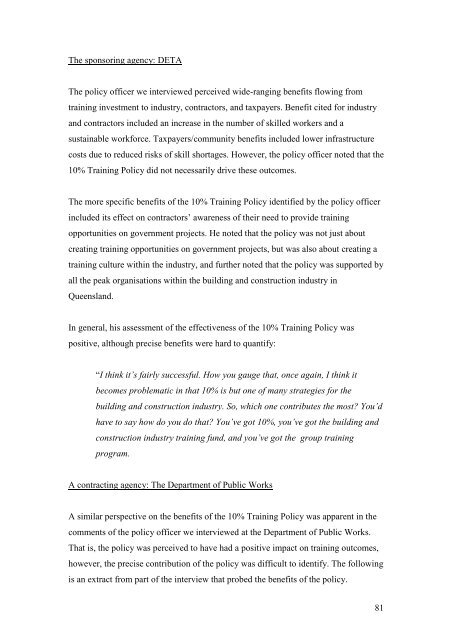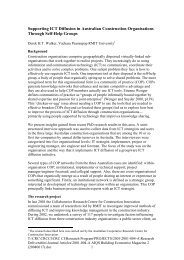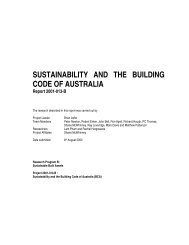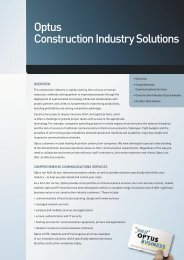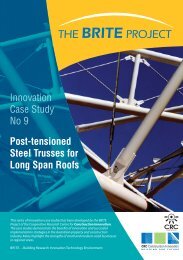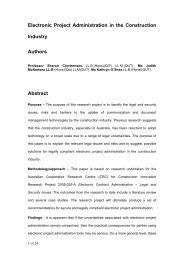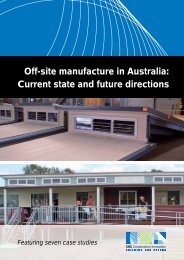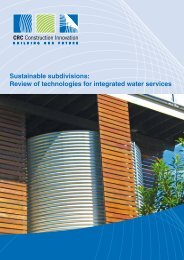Multi Outcome Construction Policy (final report)
Multi Outcome Construction Policy (final report)
Multi Outcome Construction Policy (final report)
You also want an ePaper? Increase the reach of your titles
YUMPU automatically turns print PDFs into web optimized ePapers that Google loves.
The sponsoring agency: DETAThe policy officer we interviewed perceived wide-ranging benefits flowing fromtraining investment to industry, contractors, and taxpayers. Benefit cited for industryand contractors included an increase in the number of skilled workers and asustainable workforce. Taxpayers/community benefits included lower infrastructurecosts due to reduced risks of skill shortages. However, the policy officer noted that the10% Training <strong>Policy</strong> did not necessarily drive these outcomes.The more specific benefits of the 10% Training <strong>Policy</strong> identified by the policy officerincluded its effect on contractors’ awareness of their need to provide trainingopportunities on government projects. He noted that the policy was not just aboutcreating training opportunities on government projects, but was also about creating atraining culture within the industry, and further noted that the policy was supported byall the peak organisations within the building and construction industry inQueensland.In general, his assessment of the effectiveness of the 10% Training <strong>Policy</strong> waspositive, although precise benefits were hard to quantify:“I think it’s fairly successful. How you gauge that, once again, I think itbecomes problematic in that 10% is but one of many strategies for thebuilding and construction industry. So, which one contributes the most? You’dhave to say how do you do that? You’ve got 10%, you’ve got the building andconstruction industry training fund, and you’ve got the group trainingprogram.A contracting agency: The Department of Public WorksA similar perspective on the benefits of the 10% Training <strong>Policy</strong> was apparent in thecomments of the policy officer we interviewed at the Department of Public Works.That is, the policy was perceived to have had a positive impact on training outcomes,however, the precise contribution of the policy was difficult to identify. The followingis an extract from part of the interview that probed the benefits of the policy.81


